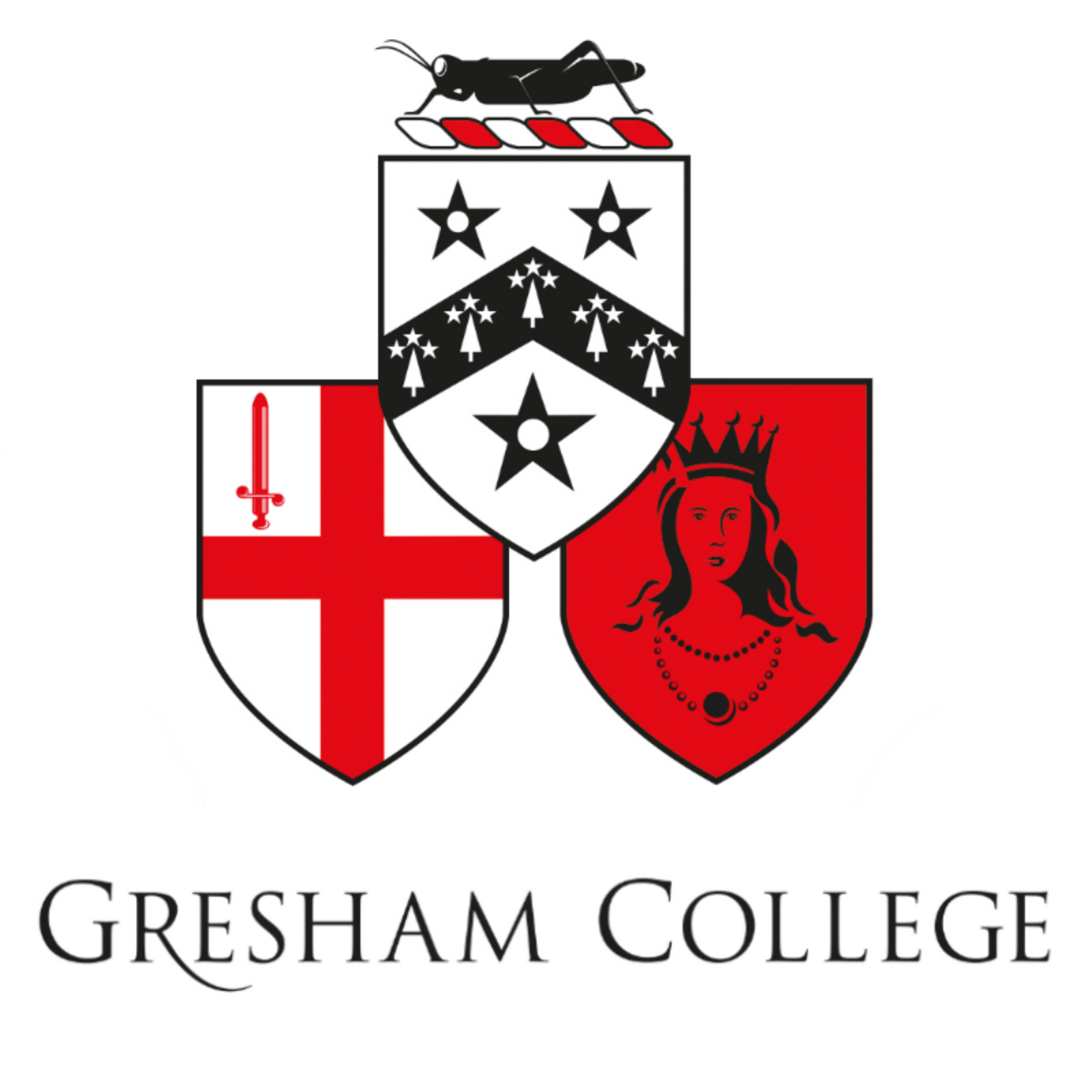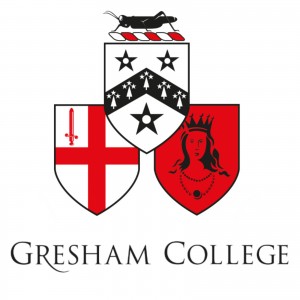It’s been an exciting week. At the beginning of the week I submitted nomination papers, duly confirmed, but except for rumour was unable to ascertain who else might be standing. On Wednesday, three of us were running. The canvassing has been underway for a week and there has been some tremendous voter interest, but today noon was the deadline for withdrawing. The announcement of the final candidates came out this afternoon. I look forward to meeting William Charnley, whom I strangely haven’t met during my City career – the City is sometimes simultaneously large and small. Thus, it’s a two horse race with me and Chris Roebuck. More news surely lies ahead…
The City of London & Broad Street Ward
“Bright Lights, Open Minds, Robust Community”
Ribbon Cutting Practice
An aspiring politician also needs to practice ribbon cutting and award ceremonies. Never one to shirk a dinner and aspiring to be a good Alderman, this event looms next week:
Systems in the City Awards 2013
Prof. Michael Mainelli and Dr Iain Saville to Announce Winners
The 2013 Systems in the City Award Winners will be announced on 19th June 2013 by Professor Michael Mainelli and Dr Iain Saville OBE
The presentation dinner will be held at The Grand Connaught Rooms and includes a champagne reception sponsored by Cofunds, a 4 course dinner and evening entertainment
With only one week to go there are only a few places left.
To make sure you do not miss out email events@goodacreuk.com or call +44 (0)20 7422 0063.
Political Podium Practice
Don’t all politicians prattle on? Where do they practice? Well this one is practicing at Gresham College tomorrow night – http://www.gresham.ac.uk/lectures-and-events/taking-modern-money-apart.
The event is free and open to the public, including Broad Street electors who wish to assess a potential Alderman’s speaking ability. Just turn up about 17:45…
“Taking Modern Money Apart”
Barnard’s Inn Hall
Beating The Broad Street Bounds
To the Natives of the Parish of St Margaret Lothbury and the Broad Street Ward Club. You are desired to meet the rest of your parishioners and club members on Thursday, 23 September 2004 at 18:00 at the Guildhall and from thence to go to your parish bounds afterwards to return to Throgmortons. You are desired as a Wellwisher to the Preservation of this Society to send by the Bearer £15 for your admission.
(as per a 1795 notice for Cripplegate Ward supplied by Claire and John Scott JP)
When parishioners could neither read nor write, how were they to know the boundaries of their village? They held an annual event to familiarise themselves with, and inspect the condition of, markers of the boundaries, frequently bumping parish boys heads at important points to beat in a key point. It was pointed out (not by boys) that Broad Street Ward Club had allowed this tradition to lapse. Realising that, as years ago, it forms the perfect excuse for a pub crawl, we arranged a fun evening and light quiz competition about the ward in 2004 – which naturally had to visit many of the local drinking establishments, 30 people on a pub crawl, ahem, visiting local businesses. And to avoid getting your head bumped, here are the bounds. At each establishment they had to have their broom signed and marked with the amount spent, as well as answer trivia questions. We have a lot of nice establishments in the ward. We waited a long time for everyone to get back for the scoring and prizegiving. Ahem.
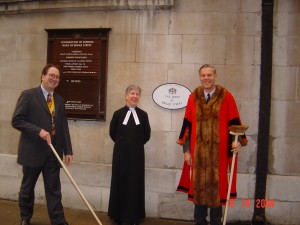
(from left to right, Michael Mainelli, Reverend Jeremy Crossley – Rector St Margaret Lothbury, Alderman David Lewis – 13 October 2004 – yes a photoshoot after the 23 September event. We looked a lot better than we did late on the 23rd, but they were the same brooms)
Broad Street Starts Here
I thought we should start with a campaign photo. When the family took a skiing trip to Jackson Hole earlier this year, I wanted my daughters to see New York City for the first time. Naturally, as my firm, Z/Yen, compiles the Global Financial Centres Index, we had to take the girls to Wall Street, and thus I have my opening picture for the campaign from the land of my birth. There will be some better photos later (the ones without me in them)!
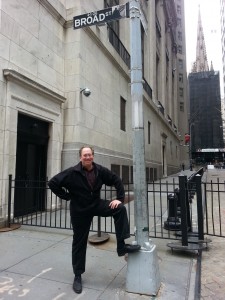
Broad Street Aldermancy – Nomination Papers Submitted
This morning I went round to the Election Office at the City of London Corporation to submit nomination papers for the Broad Street Ward Aldermanic election. All successfully registered and the campaign is now on. I am honoured to have the support of our retiring Alderman and former Lord Mayor, Sir David Lewis, and our three Common Councilmen, John Bennett, John Scott JP and Chris Hayward. To stay up-to-date with the campaign, simply click here.
If you are based in Broad Street as an elector (and if unsure, just ask) please do consider giving me, Michael Mainelli, your vote by postal ballot or by voting in person on Thursday, 4 July 2013, at Carpenters Hall, 1 Throgmorton Avenue, EC2N 2JJ from 08:00 to 20:00 – but whatever you do, please vote, the City needs a vibrant electorate. I walk through the Ward every day to and from work and would be delighted to discuss Ward business. Contact me by telephone 020 7562-9562, or via email michael_mainelli@zyen.com, or by post to Z/Yen Group, 90 Basinghall Street, London EC2V 5AY. For more campaign details see my campaign flyer – Michael Mainelli – Broad Street Ward Aldermancy Campaign 2013 – flyer
Broad Street Ward Aldermancy
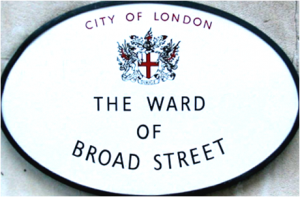 I have decided to submit a nomination form to run for Alderman of Broad Street Ward. The Wardmote is scheduled for 3 July. If there is an election, then the vote will be on 4 July – hopefully auspicious. I am honoured to have the support of our retiring Alderman and former Lord Mayor, Sir David Lewis, and our three Common Councilmen, John Bennett, John Scott JP and Chris Hayward. More on this soon! But for now, some background information and a map.
I have decided to submit a nomination form to run for Alderman of Broad Street Ward. The Wardmote is scheduled for 3 July. If there is an election, then the vote will be on 4 July – hopefully auspicious. I am honoured to have the support of our retiring Alderman and former Lord Mayor, Sir David Lewis, and our three Common Councilmen, John Bennett, John Scott JP and Chris Hayward. More on this soon! But for now, some background information and a map.
Literature and the Arts – Final Dinner For The “Libraries, Archives and Guildhall Art Gallery Committee”
Chairman, Past Chairman, Aldermen, Ladies & Gentlemen
When John Scott asked me to address this Committee and its many supporters on behalf of the guests in honour of its Past Chairman at this farewell do, I was greatly honoured. Sidney Joseph (S J) Perlman wrote for the New Yorker and also for the Marx Brothers. A copy of Perlman’s 1929 book, Dawn Ginsbergh’s Revenge, was sent to Groucho Marx. Groucho sent Perlman a letter that said, “From the moment I picked your book up until I laid it down I was convulsed with laughter. Someday I intend reading it.” [quoted in LIFE, 9 February 1962] John Scott may wind up paraphrasing, “from the moment you stood up till the moment you stood down, we were convulsed. Someday we’ll get Lisa Jardine.”
[http://guildhalllibrarynewsletter.wordpress.com/2013/12/03/clockmakers-library-exhibition/]
I learned history in the United States. Thus I know two big historical facts about libraries. First, Benjamin Franklin invented the library. Second, we lost a lot of books during the Civil War when the great library burned down in Alexandria … Virginia. Imagine my surprise on arriving in London to find that libraries, even lending libraries, pre-date Franklin, who quite probably visited the Guildhall Library. Imagine my even greater surprise to find that the Virginians have rebuilt their Bibliotheca Alexandrina in Egypt.
We’re all book addicts. I read too much, carry a Camomile Street card, even founded and sold a multi-lingual children’s book publishing firm. I’ve browsed Harvard’s Houghton rare book library for Martin Luther’s thoughts on intellectual property, and toured the wonderful gem of Thomas Plume’s library in Maldon where my children were shown sixteenth century prints of rhinoceri. Our family checks out talking books from the Barbican while I delve in the Guildhall on Gresham College or the City digital archives on Thames sailing barges. Yes, we’re all addicts. Claire Scott and I sympathise with Groucho Marx – “I find television very educational. Every time someone switches it on I go into another room and read a good book.” Though an art philistine, I’m forever telling friends to borrow my visitor’s card to the Guildhall Art Gallery. A while ago, as one wag put, “the Guildhall Art Gallery was the only public art gallery in London where everyone got a private viewing”. Today, thanks to this Committee’s work, the Gallery reaches more and more people as the City opens up to visitors, rather than closing in due to the financial crises.
Yet … asking friends about libraries for this lecture elicited immense support, but a paucity of recent visits. Some years ago I hosted a dinner for a man with a strange accent, Loyd Grossman. As well as his sauces with a distinctive voice, Loyd is known for his work on museums and questioned whether museums were “Temples of the Muses or Temples of Amusement”. Everyone loves museums in the abstract, but in practice? Last year our family added a Kindle and an iPad last year to our menagerie of gadgets. Both have filled up with our-children-ought-to-read-these books Elisabeth and I treasure. And this affects libraries. Libraries and archives are loved in abstract, but attendance and usage drift in these days of “never judge a book by its movie”. [JW Eagan]
Perhaps libraries and archives are never more loved than as metaphors. Jorge Luis Borges was director of the Argentine National Library. He remarked, “if I were asked to name the chief event in my life, I should say my father’s library”. Borges’ famous short story, The Library of Babel, postulated a vast library containing all possible ‘410 page’ books, inspiring numerous philosophical musings, such as how libraries explain Bertrand Russell’s paradox on mathematical sets – where do you catalogue the catalogue of all catalogues that don’t list themselves?
The British statesman Lord Palmerston must have visited many libraries to become an expert on the enigmatic Schleswig-Holstein problem of the mid 19th century. Palmerston said: “Only three people have ever really understood the Schleswig-Holstein business – the Prince Consort, who is dead – a German professor, who has gone mad – and I, who have forgotten all about it.” In the age of the internet, libraries, archives and art galleries everywhere pose riddles of Schleswig-Holstein complexity. According to W V Quine, the renowned Harvard philosopher, Borges’ infinite library can be created simply by writing a dot on one side of paper, a dash on the back, and then randomly flipping till the end of eternity. Bits and bytes are our challenge. Our pressing paradox is that until some desperately distant time in the future, we need to preserve the past today.
Libraries and archives serve at least three functions – building communities of learning, providing information services, and supporting research. All of these are important to us, and all are in flux. But I would like to emphasise a fourth function that this committee exemplifies. Experimentation. Notwithstanding our shared fondness for cellulose information storage, this committee’s legacy will be its experiments. Whether trialling DVDs or internet access, testing new working methods, building European Visual Archives, or striking innovative deals with Ancestry.co.uk, this Committee has shown daring. And while he or she who dares does not always win, they are remembered. Libraries and archives will change – and this Committee has helped them learn how.
Seneca believed in this form of remembrance: “Why do you ask, how long has he lived? He has lived to posterity.” [“Quid quaeris, quamdiu vixit? Vixit ad posteros.”] (Lucius Annaeus Seneca), Epistles (XCIII) Preservation is key, but your true legacy is what you dared to try for posterity. Sometimes posterity is high-brow, from new insights on the origins of science to rediscovered musical scores. Sometimes posterity is low-brow – C J Sansom’s best-selling crime series set in the reign of Henry VIII features a hunchbacked lawyer in Lincoln’s Inn, Matthew Shardlake. Shardlake has to rely on the Guildhall library to solve cases. Someone in the 16th century experimented with letting lawyers in. Now that was daring.
We’ve had a great evening with fantastic food, wonderful music and fine hospitality. This is not a wake, more a celebration around a blazing phoenix – I expect much to arise from this Committee’s legacy; so I shall end with a quote from Teddy Roosevelt that exhorts your successors to experiment even more – “Far better it is to dare mighty things, to win glorious triumphs even though checkered by failure, than to rank with those poor spirits who neither enjoy nor suffer much because they live in the gray twilight that knows neither victory nor defeat.”
May I ask all guests to be upstanding as I propose a toast to our hosts – “To the Libraries, Archives and Guildhall Art Gallery Committee – Literature and the Arts.”
Gresham College – A Short, Personal, Alternative History
Gresham College – A Short, Personal, Alternative History
Professor Michael Mainelli, Gresham Fellow & Trustee
[October 2009 – originally written for the Mercers’ Company]
Sir Thomas Gresham (1519-1579) traded cloth and linens between England and the Low Countries at a time when Cambridge and Oxford had a duopolistic hold on higher education in England. A Cambridge man himself (Caius College), if Gresham’s skippers had visited an Oxbridge College they would have, at best, had the door of a college opened to them and then been laughed at in Latin for their ignorance before being closed in their face.
If you’re going to backstab some one properly, do it from the front. Gresham did so with money. Sir Thomas died of apoplexy in 1579 bequeathing one moiety to the Corporation of London and the other moiety to the Mercers’ Company, charging them with the nomination of seven Professors to lecture in Astronomy, Divinity, Geometry, Law, Music, Physic and Rhetoric. He required the lectures to be in Latin and, horror horribilis, English. In effect, Sir Thomas, who pursued monopolies himself, used his will of 1575 anti-monopolistically to crack the Oxbridge oligopoly by bribing seven professors to give lectures to the public, in English.
Gresham College is about ‘new learning’. Sir Thomas felt strongly that the ‘new learning’ should be available to those who worked – merchants, tradesmen and ships’ navigators – rather than solely gentlemen scholars. In the 17th century, the Royal Society was founded to explore “natural philosophy”, new learning through experimentation. So, it is no surprise that the Royal Society was founded and housed at Gresham College for half a century (1660 to 1710) and numbered among its associates Gresham Professors Petty, Boyle, and Evelyn.
For over 400 years the Gresham Professors have given free public lectures in the City of London. I had the privilege of four years (2005-2009) in the modern, eighth chair as Mercers’ School Memorial Professor of Commerce from 2005 to 2009. There are some deep footsteps in which we tread. Early professors at Gresham College included Christopher Wren and Robert Hooke, also integral to the Royal Society. Recent professors include the mathematical physicist Sir Roger Penrose of Penrose/Hawkings fame and the theoretical physicist John Barrow, who won the Templeton Prize and the Royal Society’s Michael Faraday Prize.
Professorships are awarded for three years with a stipend for six lectures a year, though professors often give more. Each professor develops his or her own programme. Academic professors complain that what seems like a sinecure is actually a very demanding post requiring novel, innovative, researched lectures of six to eight thousand words suitable for a global audience. Business professors, such as I, definitely find it is work. My estimate is that each lecture takes approximately 100 hours of preparation, thus 600 hours at about £10/hour – you’re not doing it for the money. In fact, at that rate you should question whether you’re competent to be a professor of commerce.
As my tenure was extended for a year and I had ‘been volunteered’ each year for an additional lecture in the Docklands, I gave 28 lectures. As a glutton for work, I gave a final synthesis lecture as part of the City of London Festival’s celebration of the 2,000 anniversary of the publication of Ovid’s Metamorphoses with saxophonist John Harle and friend Bill Joseph, “Metamorphoses: The Terrible Beauty of Change“, for 29 formal lectures in four years. The core 28 lectures, around 8,000 words per lecture, 56,000 words per year, some 224,000 words, found their way into the obligatory book – The Price of Fish: A New Approach To Wicked Economics And Better Decisions. Fortunately for readers, only 100,000 found their way out to the printer.
Given 48 professorial lectures a year, along with honorary professors, former professors, fellows and numerous guest lecturers, Gresham College provides around 140 intellectual events a year for business people, retired people, mature students, university students, schools and the general public. Each year over 20,000 people physically attend Gresham College’s 140 lectures. In an age concerned with making money from intellectual property, Gresham College encourages the free exchange of ideas and is one of the most potent intellectual houses on the net and podcasts. To quote Jefferson, “He who receives an idea from me, receives instruction himself without lessening mine; as he who lights his taper at mine, receives light without darkening me”. The Gresham community worldwide downloads lectures over a million times each year from a library of now thousands of recorded lectures, many of which find their way into syllabi from the USA to China. My strapline for Gresham College today is, “Gresham College: The Modern Tudor Open University”, a “Tudor TED” even.
At Gresham College, we seek to reinterpret the ‘new learning’ of Sir Thomas’s time in contemporary terms. Our emphasis is on sharing knowledge, exchanging ideas, fusing old views and generating new insights. Gresham College is increasingly important for those living and working in London as the traditional universities and colleges focus on qualifications and are less able to offer the extra-mural activities they once did. We have no conscripts: we have a community of people who come because they want to, because they find the lectures and seminars topical, informative and enjoyable. Gresham College is about personal, higher education from dipping into one lecture to completing a series. I often lord over my academic friends that our current Registrar continues a long tradition of Registrary excellence – in over 400 years no registrar has admitted a single student.
Yes, I am a Gresham Groupie. I found the four years at Gresham College extremely rewarding and remain a Trustee and Fellow, and my firm continues to work on Long Finance and the London Accord with Gresham College. Sir Thomas Gresham is synonymous with Gresham’s Law, best expressed as “good money drives out bad”. I often think that the best people in the world come to work in one of the best cities in the world because Gresham College has a part in helping good discussion drive out bad. Our 16th century Open University is going strong in the 21st.
[I continued to give talks and run symposia to the point that I ultimately became involved in over 120 events.]
To view all Michael’s Gresham lectures.
The City Debate: In This Current Financial Environment, More Financial Regulation Is A Major Part Of The Solution
Securities & Investment Institute
Annual Debate
Mansion House, London
Wednesday, 14 January 2009
“In this current financial environment, more financial regulation is a major part of the solution”
For the motion:
Dr Vince Cable MP
Mr Alan Yarrow FSI
Against the motion:
Professor Michael Mainelli FSI
Mr David Bennett FSI
Chairman – My Lord Mayor, Ladies and Gentlemen.
Chairman:
Mr Christopher Jones-Warner FSI

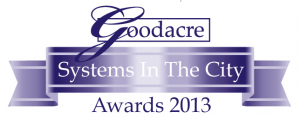

![039bc[1]](http://www.mainelli.org/wp-content/uploads/2014/03/039bc1-300x176.jpg)
